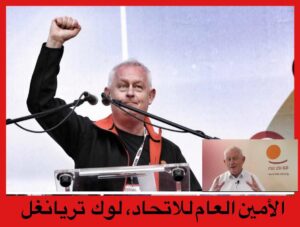Wrote by,, Aisheh Hmoudah
Writer and Trade Union Activist
Institutionalizing social dialogue has become a fundamental pillar in building a stable and resilient labor market, particularly in contexts experiencing political, economic, and social volatility. Social dialogue—between government, employers, and workers represented by their trade unions—is no longer confined to negotiating working conditions. It has evolved into a comprehensive national framework for shaping public policies, advancing social justice, and enabling sustainable economic development.
Social Dialogue as a Foundation for Effective Economic and Social Policies
Institutionalized social dialogue aims to establish permanent and structured mechanisms for consultation, negotiation, and participatory decision-making. These mechanisms are essential for developing economic and social policies that respond to the realities of the labor market. Such policies go beyond addressing unemployment and improving employment programs; they contribute to a long-term economic vision capable of navigating global transformations, including:
• The expansion of the digital economy and platform work.
• The requirements of a just transition in the context of climate change.
• The growing need to promote green jobs and sustainable decent work.
These global shifts demand that Palestine adopt new tools and frameworks for social dialogue that support innovation, protect workers, and engage all stakeholders in shaping the labor market of the future.
The Need for a Renewed National Vision Amid Current Realities
Palestine continues to endure exceptional political and socio-economic conditions, particularly in light of the ongoing crimes against the Palestinian people—including the devastating destruction and mass atrocities in the Gaza Strip and the escalating settler violence and violations across the West Bank. These realities not only hinder economic development but also weaken the structure of the labor market and limit the ability to build a long-term national strategy.
In this context, institutionalized social dialogue becomes a national instrument for building a sustainable vision based on:
• Reconstructing the economic and social fabric.
• Strengthening the resilience of workers and vulnerable groups.
• Investing in human capital capable of adapting to future labor market demands.
• Supporting national policies tied to building and realizing the independent State of Palestine.
The Trade Union Movement as a Central Partner
Institutionalizing social dialogue cannot be separated from the vital role of the trade union movement. Trade unions are not merely bargaining actors; they are central national institutions representing workers’ interests and holding substantial knowledge of the labor market’s realities. When empowered with a genuine role in public policymaking, unions strengthen the foundations of participatory governance and social justice.
Enhancing the role of the trade union movement contributes to:
• Developing labor legislation and regulating labor relations.
• Protecting workers’ economic and social rights.
• Supporting the shift toward green work and the digital labor market.
• Ensuring equitable participation in shaping national policies.
Toward a Palestinian Model of Institutionalized Social Dialogue
Building an institutionalized system of social dialogue in Palestine is not a bureaucratic preference—it is a strategic necessity for state-building. Dialogue grounded in rights, participation, and transparency can unify national efforts and direct them toward meaningful investment in human and financial resources, strengthening resilience against the pressures of occupation and economic instability.
Conclusion
Palestine urgently needs a genuine model of institutionalized social dialogue—one rooted in strong institutions, effective trade unions, and a clear partnership between government, employers, and workers. Such a model would reinforce national resilience, align economic and social policies with global transformations, and guarantee workers’ rights within a fair, secure, and sustainable labor market.
Institutionalizing social dialogue is not a procedural step; it is a strategic pathway toward building a modern, just, and participatory Palestinian state—one that invests in its people as its most valuable national asset.





